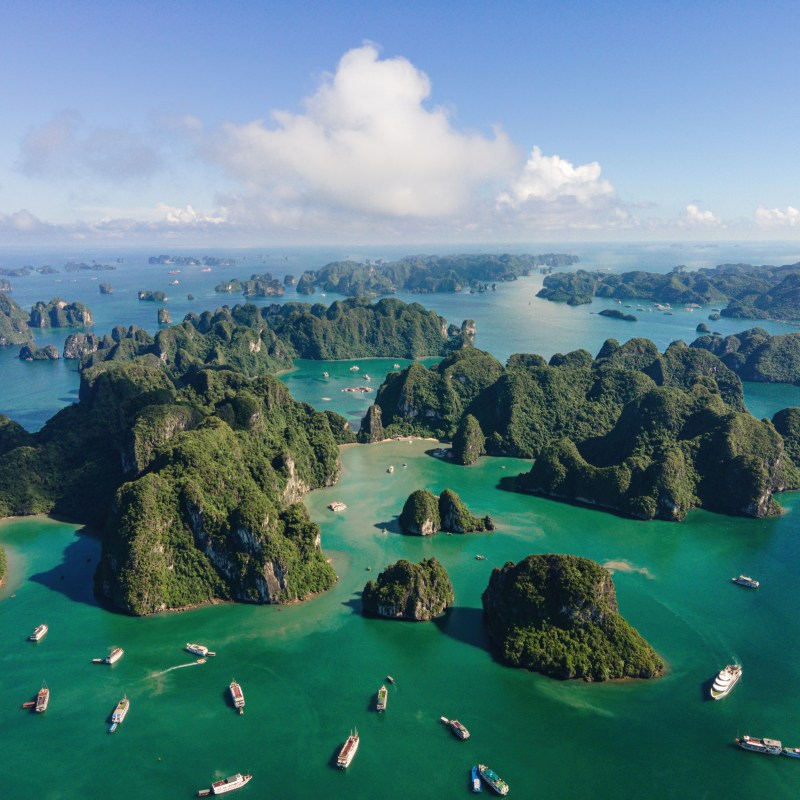
Thailand and Vietnam are two of the most popular Southeast Asian destinations for Americans.
Videos by TravelAwaits
While Bali, Indonesia, has also captured the heart of travelers looking for an exotic, cultural adventure, it’s only a small island. By comparison, Thailand and Vietnam are much grander in terms of size, population, diversity, and, of course, travel opportunities.
There’s just one catch—for all their differences, they have a lot in common. If you need a little crash course on learning about Thailand vs Vietnam, these are the most important distinctions for you to keep in mind.
First up: keep in mind that Thailand and Vietnam aren’t located next to one another. Thailand is located in the west of Southeast Asia’s mainland, and Vietnam in the east. They’re separated by Laos and Cambodia.
Thailand vs Vietnam: 8 key differences travelers should know
Thailand was never colonized
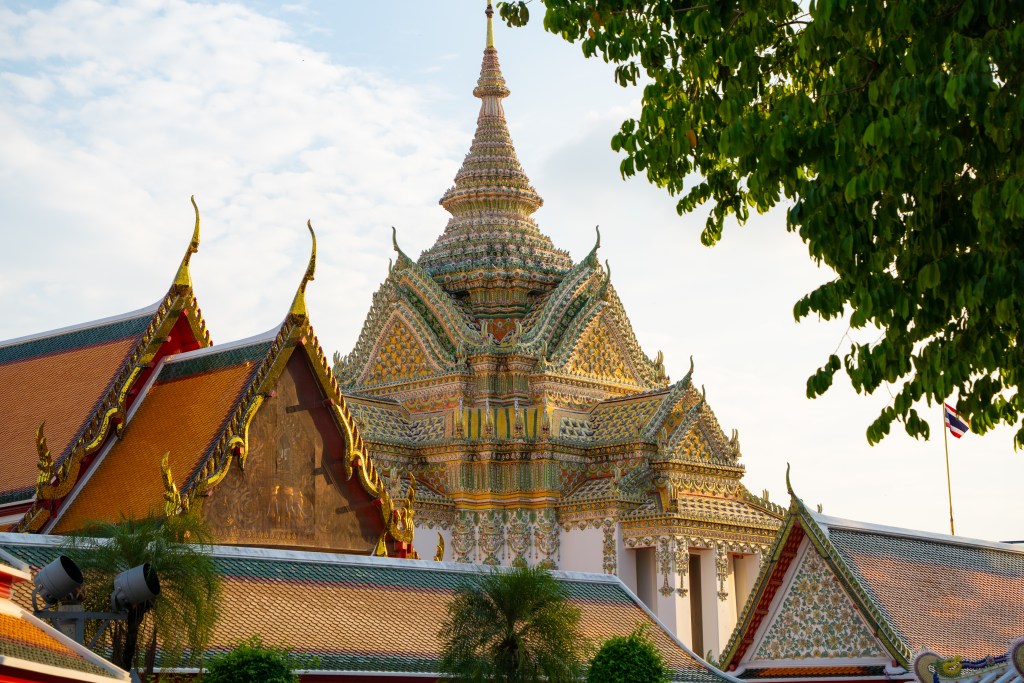
Something I learned while earning my Global Studies degree: countries that were never colonized by European powers like to mention it. Thailand is one of those countries, alongside others like South Korea, Turkey, Iran, and Liberia, for example.
I’m pointing this out to travelers because it means that locals really don’t speak too much English—or French, Dutch, Spanish, or Portuguese.
In other words, from a cultural and political standpoint, Thailand has been doing its own thing for centuries. And while it had to contend with British and French interference throughout the 1800s, Thailand—aka Siam—was able to modernize and unite its various kingdoms rather than succumb. Today, it’s still very fond of its royal family, which I’ll get to below.
(Just a note: Vietnam is also very proud of its independence, which it won from both the French, during the colonial era, and, later on, the US during the 1960s and 70s.)
Vietnam is a communist nation
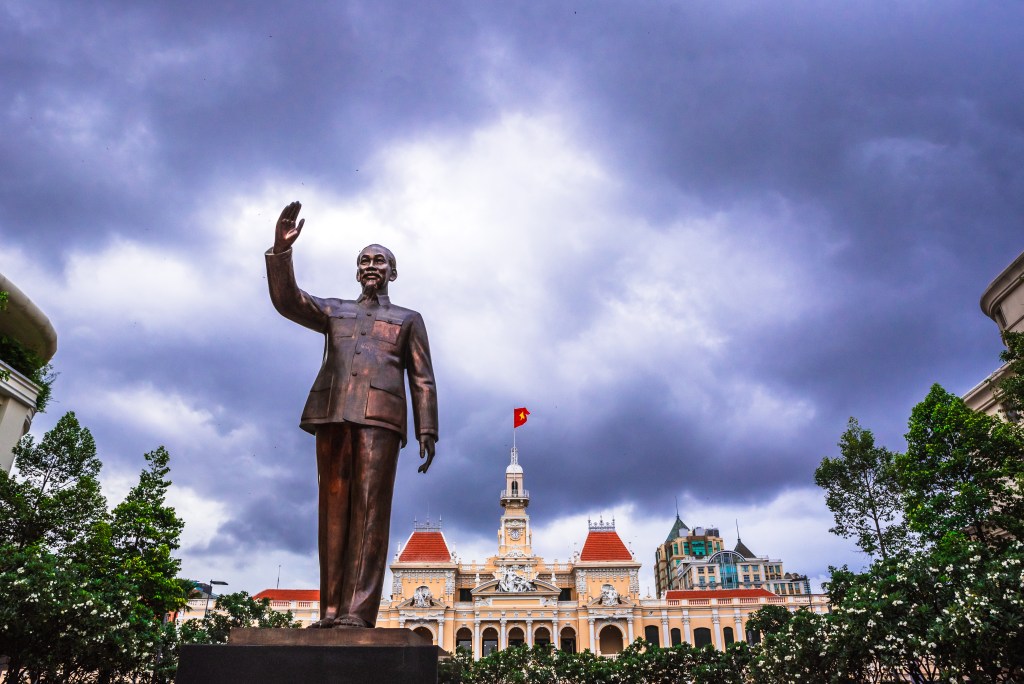
Vietnam is officially known as the Socialist Republic of Vietnam, which is led by the Communist Party of Vietnam. The latter is known as the CPV, which controls media, government, and even the military.
You’ll notice plenty of communist symbolism, along with posters of Marx, Lenin, and national hero Ho Chi Minh. The CPV also controls freedoms of speech and assembly, along with national development plans.
That being said, private enterprise is allowed, and Vietnam’s economy is growing steadily. In short, I think it’s a great place for Americans (who are generally ultra-spooked by communism) to see how this type of approach pans out in day-to-day life.
Thai has its own script, while Vietnamese uses a Latin alphabet
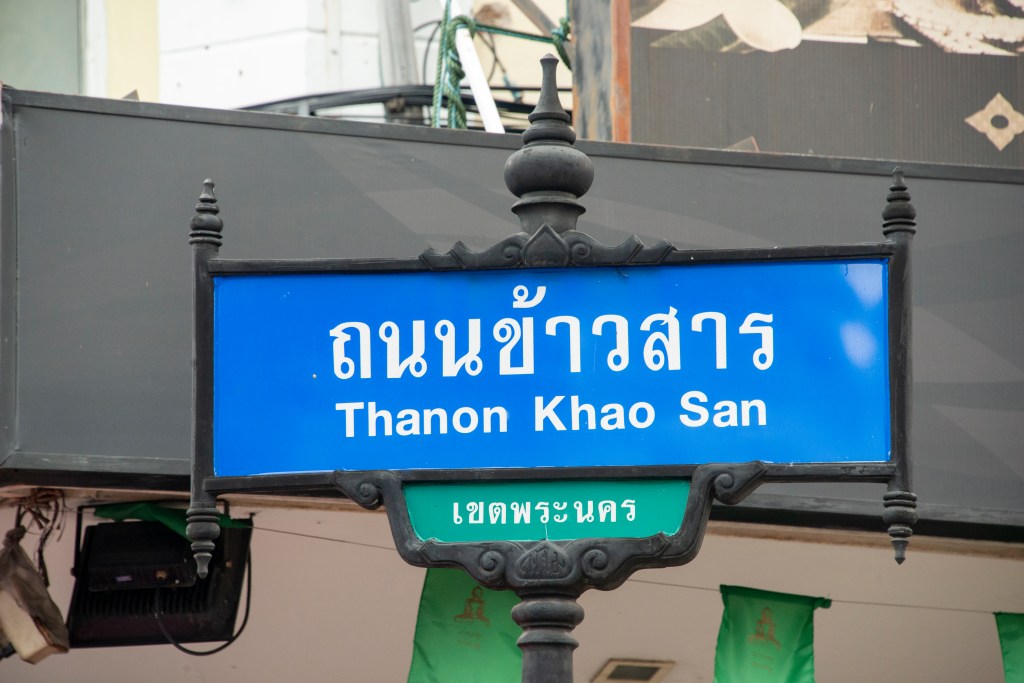
Thailand’s script is one of the most beautiful in the world, in my opinion. The language is also considered one of the most difficult to learn, thanks to its five tones. Mandarin Chinese, for example, is famous for its four tones. Meanwhile, Vietnamese has six tones.
In short, you’re going to hear a lot of unique tones and vocal intonations when you visit either country. But one huge difference you’ll see is that Vietnam is written with a Latin script. Vietnam once used an adapted version of Chinese characters, but transitioned to the use of a Latin script called Chū Quôc Ngū in the 17th century following the arrival of French Jesuit colonists.
Thailand loves its royal family
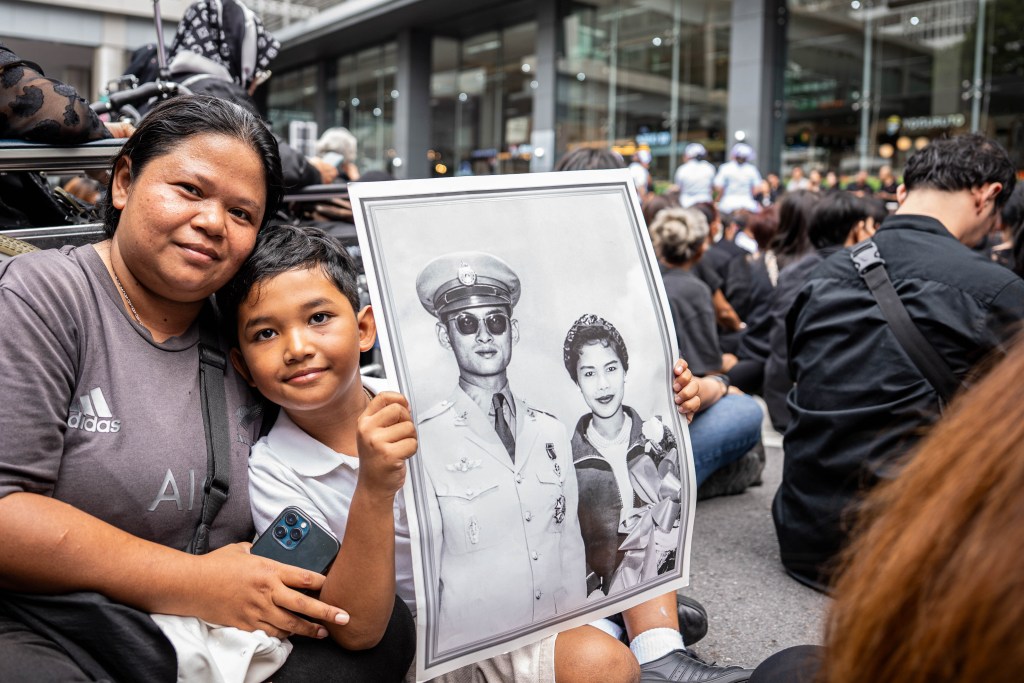
Like I already mentioned, Thailand formed when multiple kingdoms united to help fend off British and French invaders. In 1782, this led to the establishment of the monarchy of Thailand, the current Chakri Dynasty. (Some say it originated in the Sukhothai Kingdom in the 13th century.)
The country currently runs on a constitutional monarchy, and His Majesty Rama X largely holds social and spiritual roles. However, Thai people adore their king, especially His Majesty Rama IX, aka King Bhumipol Adulyadej, who passed in 2016. Recently, his wife, Queen Sirikit, passed away. Thailand will be in mourning for many more weeks.
If you visit Thailand, be careful not to insult the Thai royal family, either through speech or through disrespecting images and shrines set up for them. Obviously, it’s disrespectful to do this anywhere, but in Thailand, it could earn you a (hefty) prison sentence.
Vietnamese flavors are sweet & sour
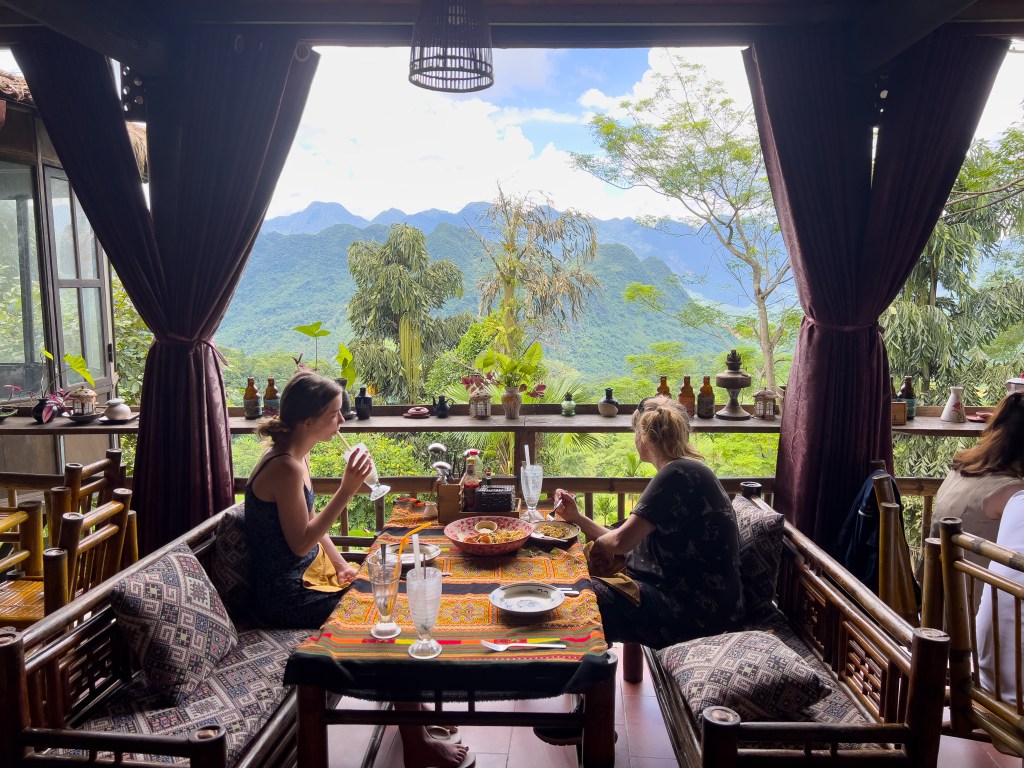
Vietnam has culinary influences from China and France. That makes for a truly delicious mashup of flavor profiles, including sweet and sour soups, along with plenty of European-style bakeries.
Thanks to Thailand’s well-known campaign to put its national dishes on the map, I think many Americans are aware of its bold flavors. Vietnamese, maybe not so much. Expect a balance of sweet, salty, bitter, spicy, and sour elements.
Thailand has some of the best tropical beaches in the world
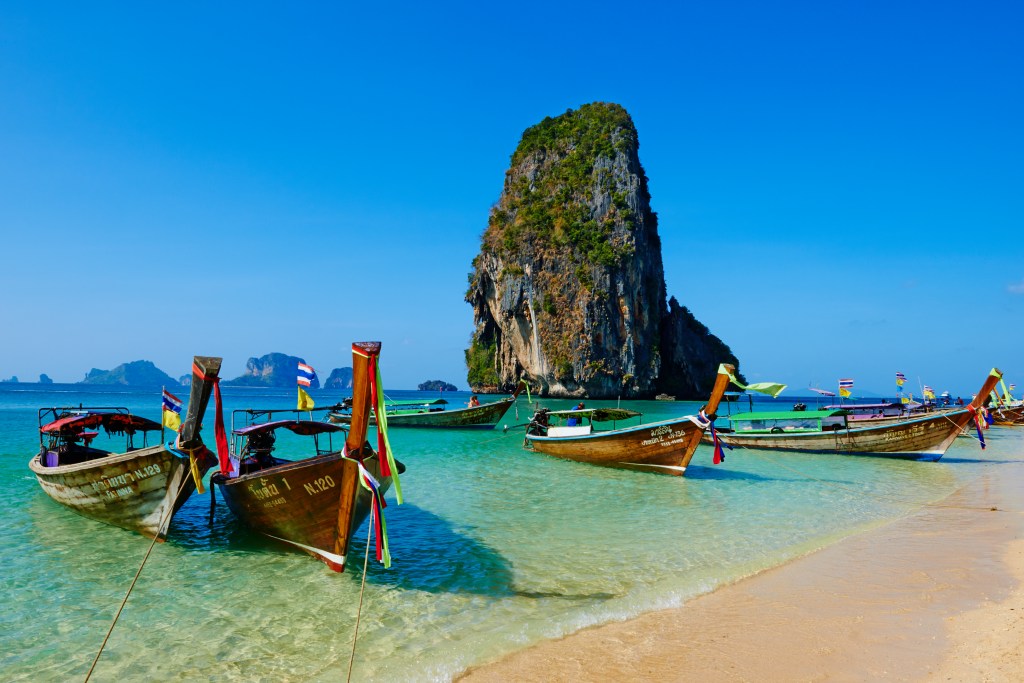
When you picture tropical paradise beaches, which come to mind? I bet many travelers with global experience would bring up Koh Samui, Phuket, or Phi Phi. That’s because Thailand has some of the world’s clearest waters, swimmable beaches, and otherwise lush, tropical views.
Vietnam, with over 2,000 miles of coastline, is also home to a few stunners, especially Hoi An, Da Nang, and Sao Beach. That being said, if you’re on the hunt for a Hollywood-caliber tropical adventure, I’d go with Thailand. There are more islands to explore, and more developed beach towns ready for tourists.
Vietnam is ideal for culture & city travel
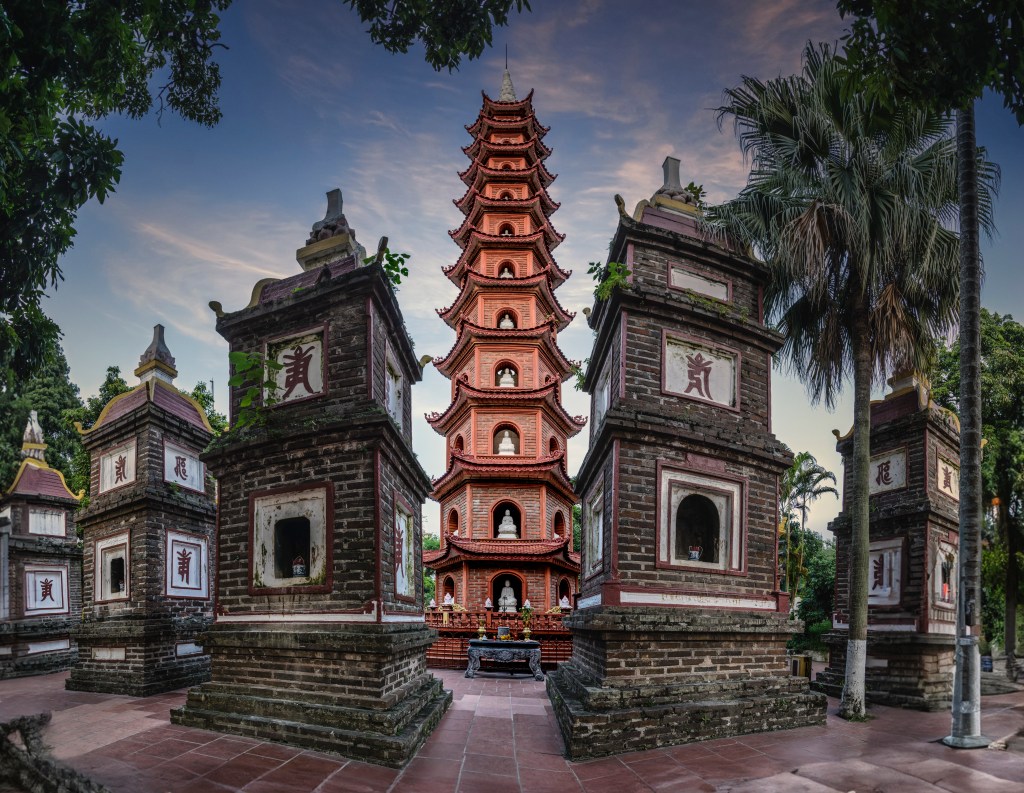
By contrast, Vietnam has two massive cities to explore—and untold cultural adventures to go on. Again, you can and should see the beaches, but I think the more rugged coastlines, such as Ha Long Bay, are more worth the trouble.
In Northern Vietnam, you can dive into Hanoi’s bustling streets to sample the country’s best food. There are hidden temples galore, along with a lovely, large lake. You can even join the elders in their morning stretches in the parks, if you want.
In Southern Vietnam, you can spend days exploring Ho Chi Minh City. It’s also home to delicious eateries and small bars serving cheap beer. Plus, you can dive into places like the War Remnants Museum, Independence Palace, and other national landmarks.
By contrast, I wouldn’t spend too much time in Bangkok. While there are plenty of adventures waiting around every corner, I’d recommend visiting a city like Chiang Mai instead.
Thailand is more developed for tourism
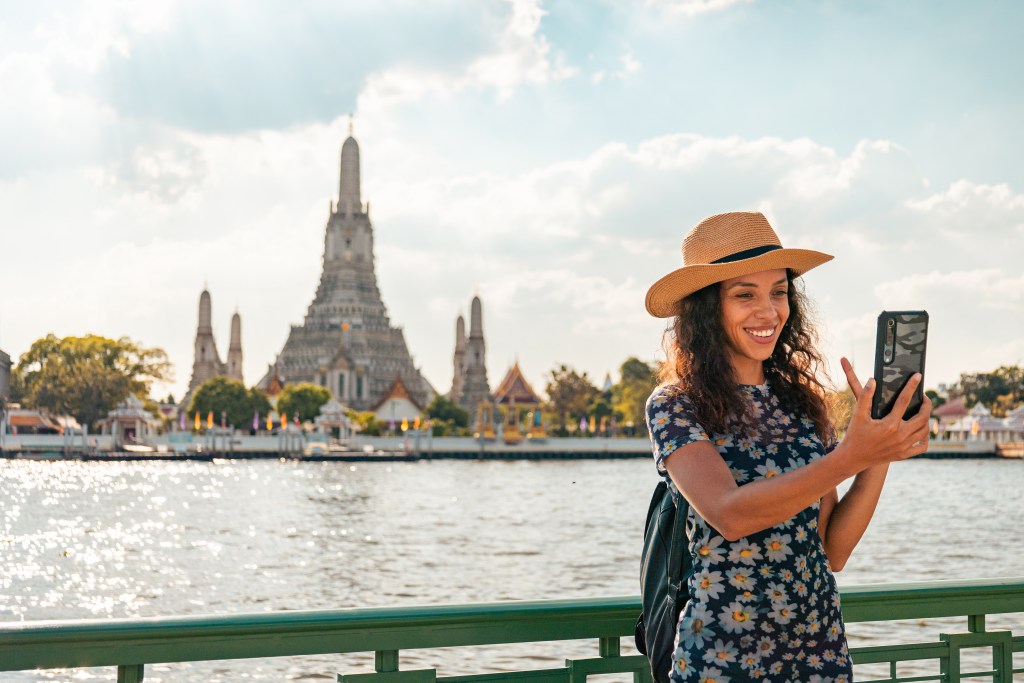
One reason that Thai people love King Bhumipol is that he helped modernize the country, and especially leaned on tourism to give locals economic opportunity. While Thailand is struggling to manage overtourism and the problems it brings, the country is used to welcoming travelers of all stripes—from luxury adventurers to humble backpackers.
In addition to having more infrastructure available to tourists, Thai people are also renowned for being patient, welcoming, and overall lovely. In short, you won’t feel that you’re stepping on any toes or that you aren’t welcome when you’re in Thailand—so long as you respect the monarchy, temples, and religious spaces, and have patience.
